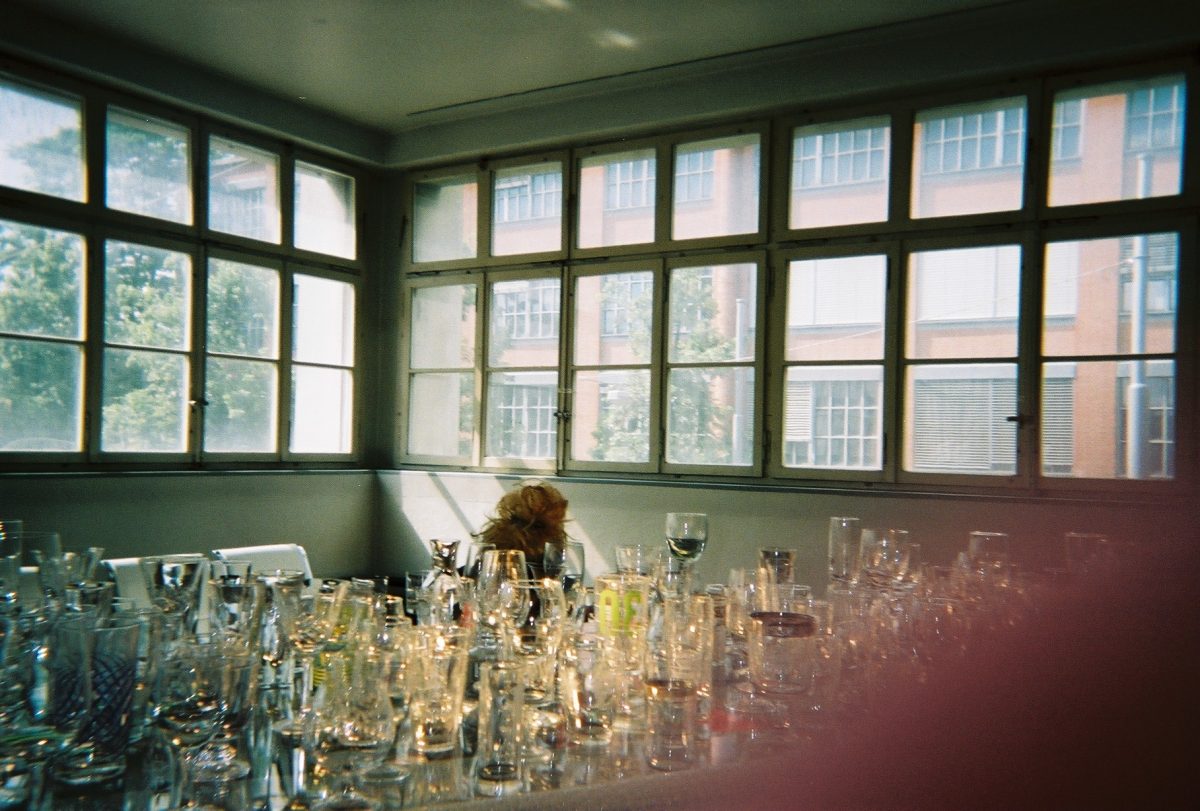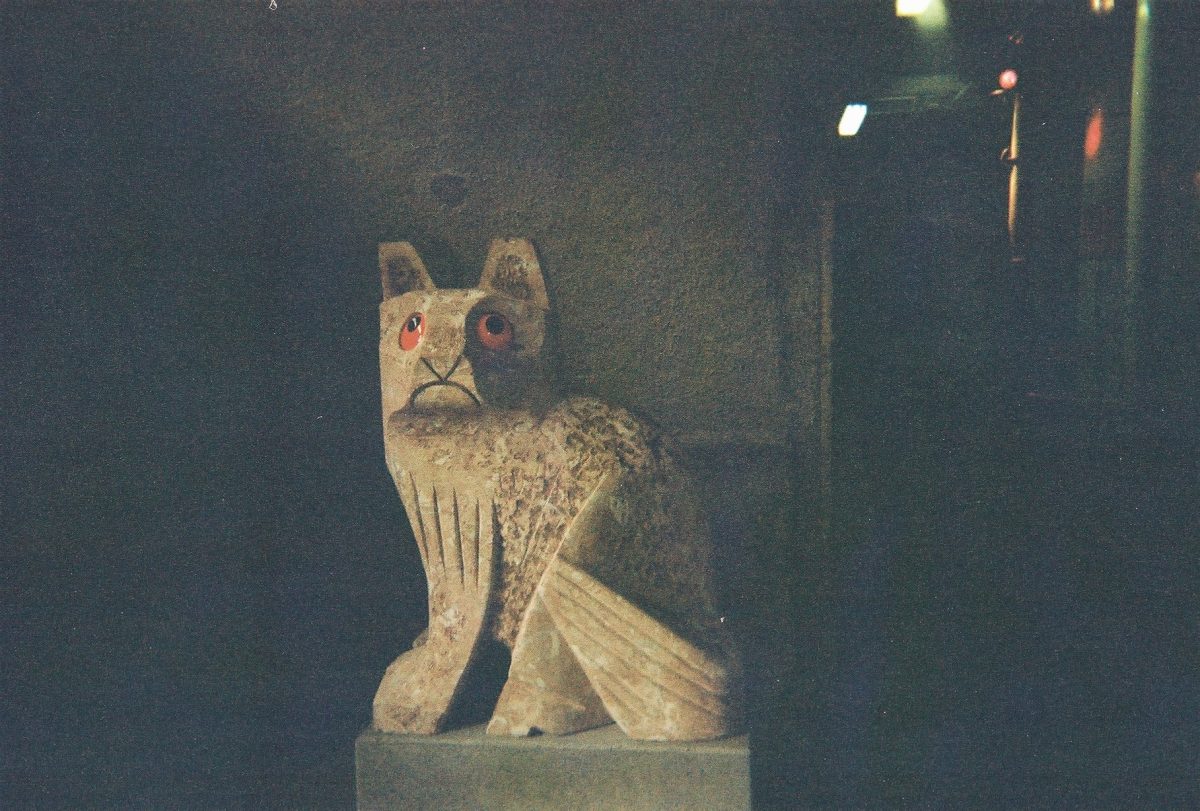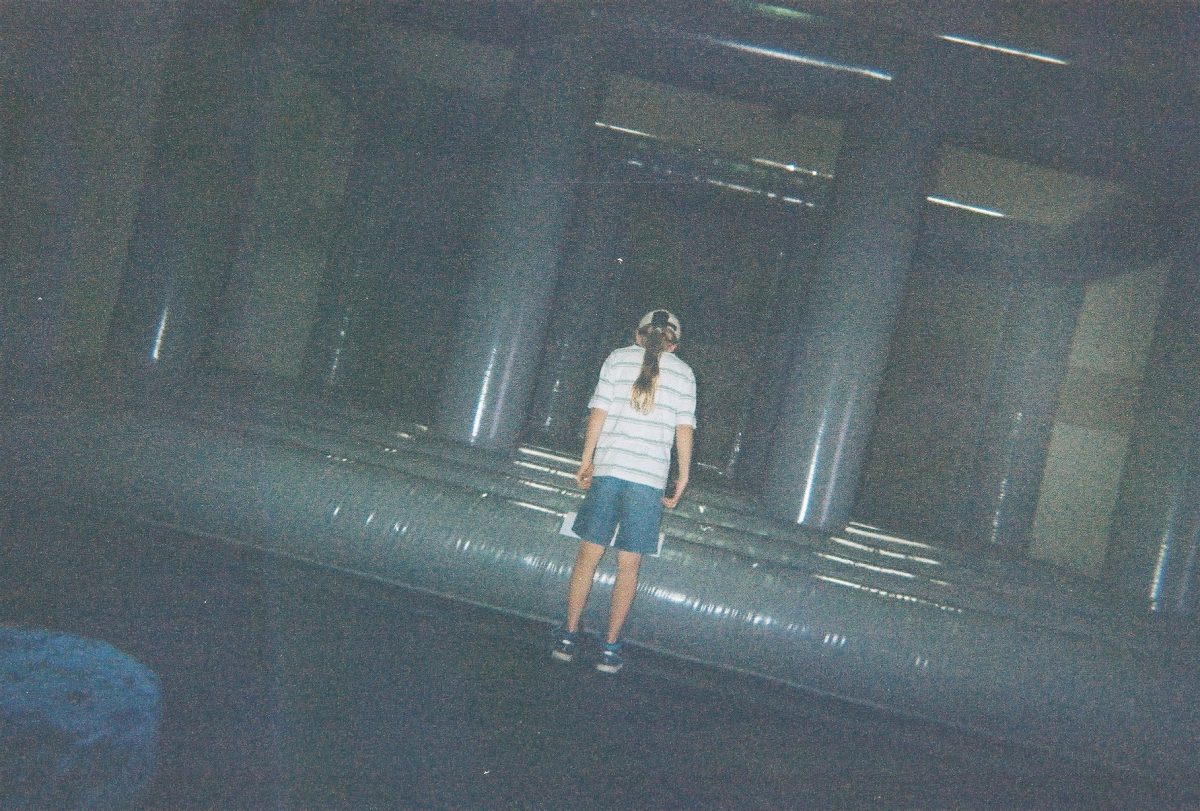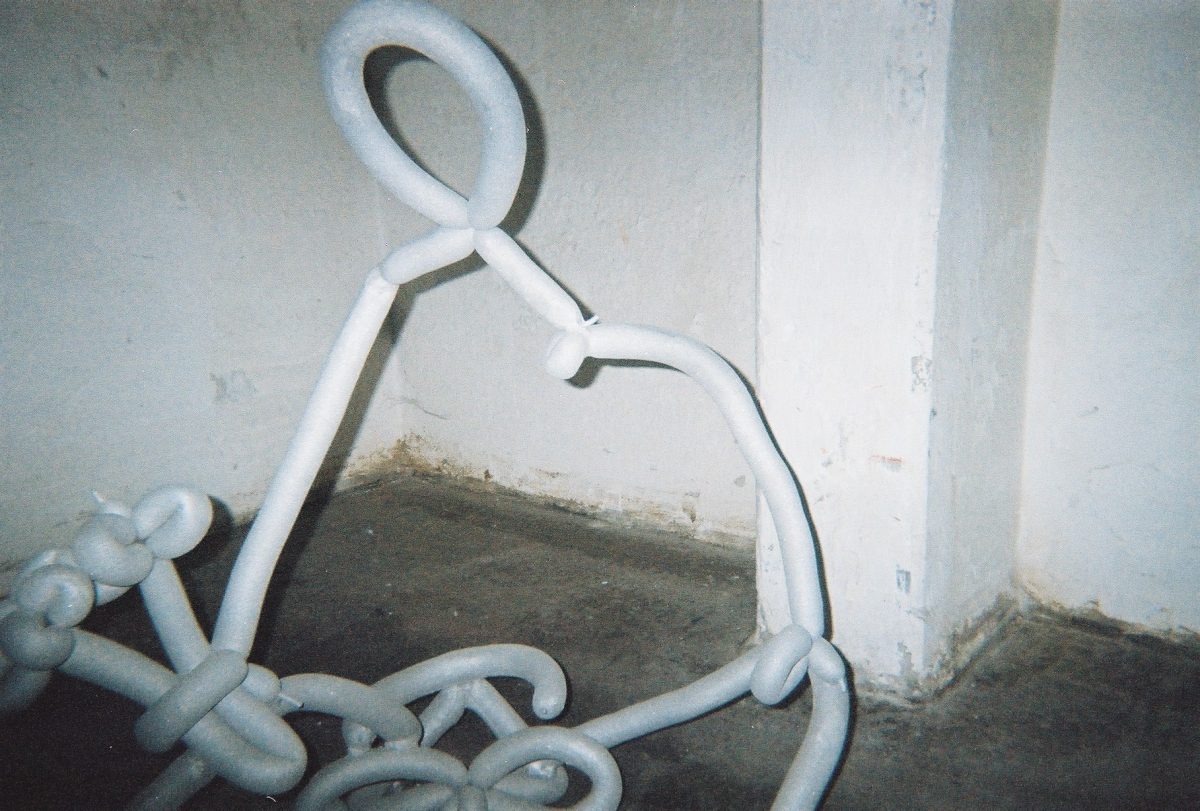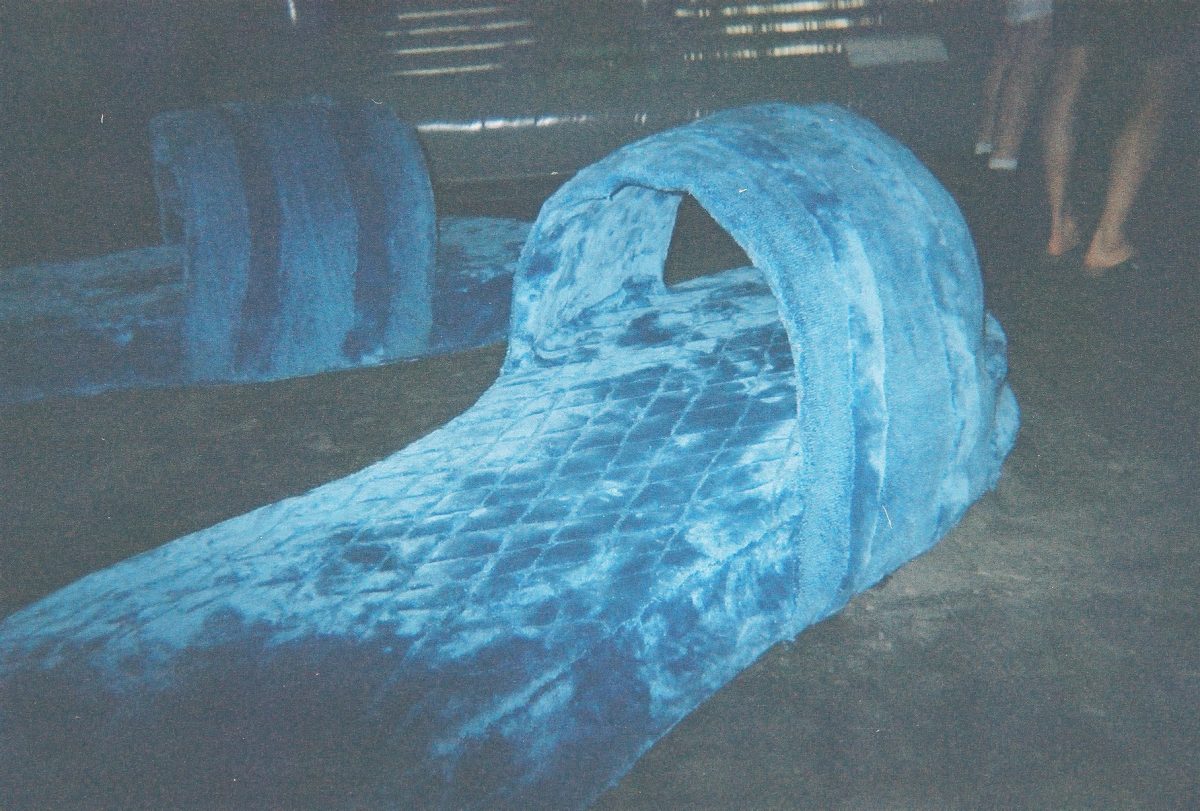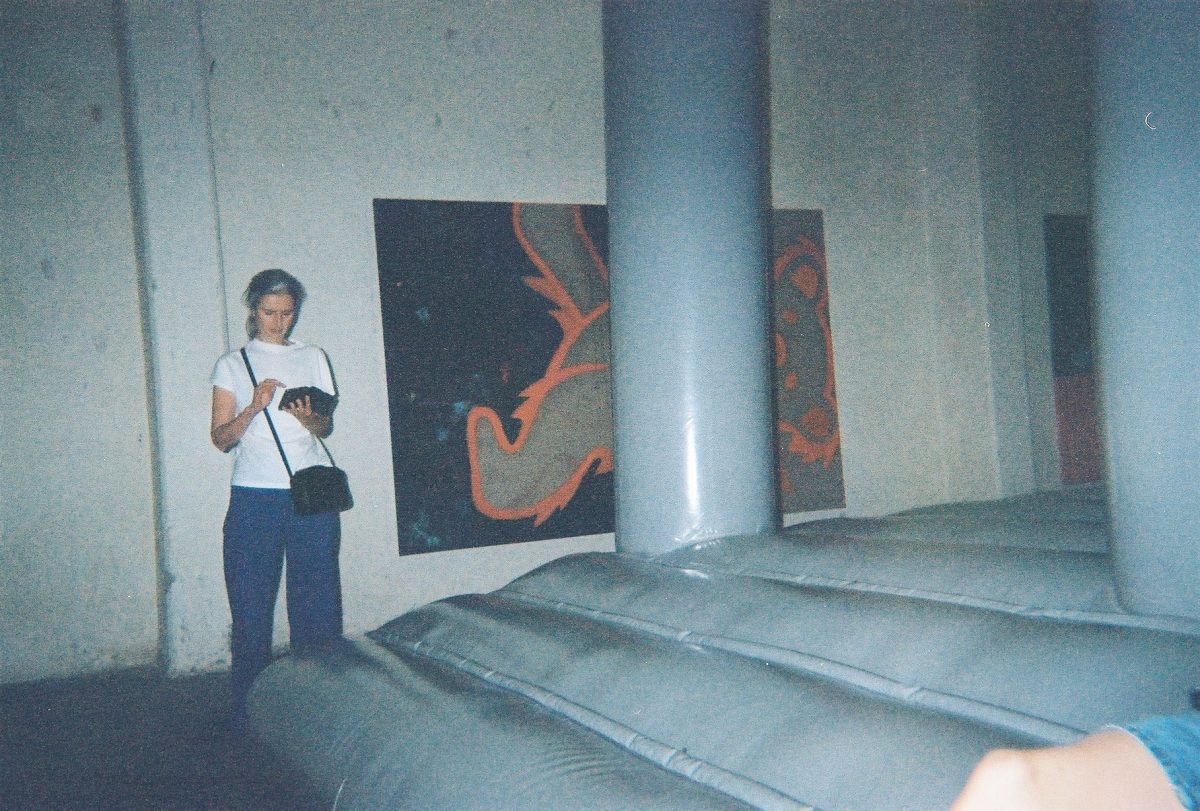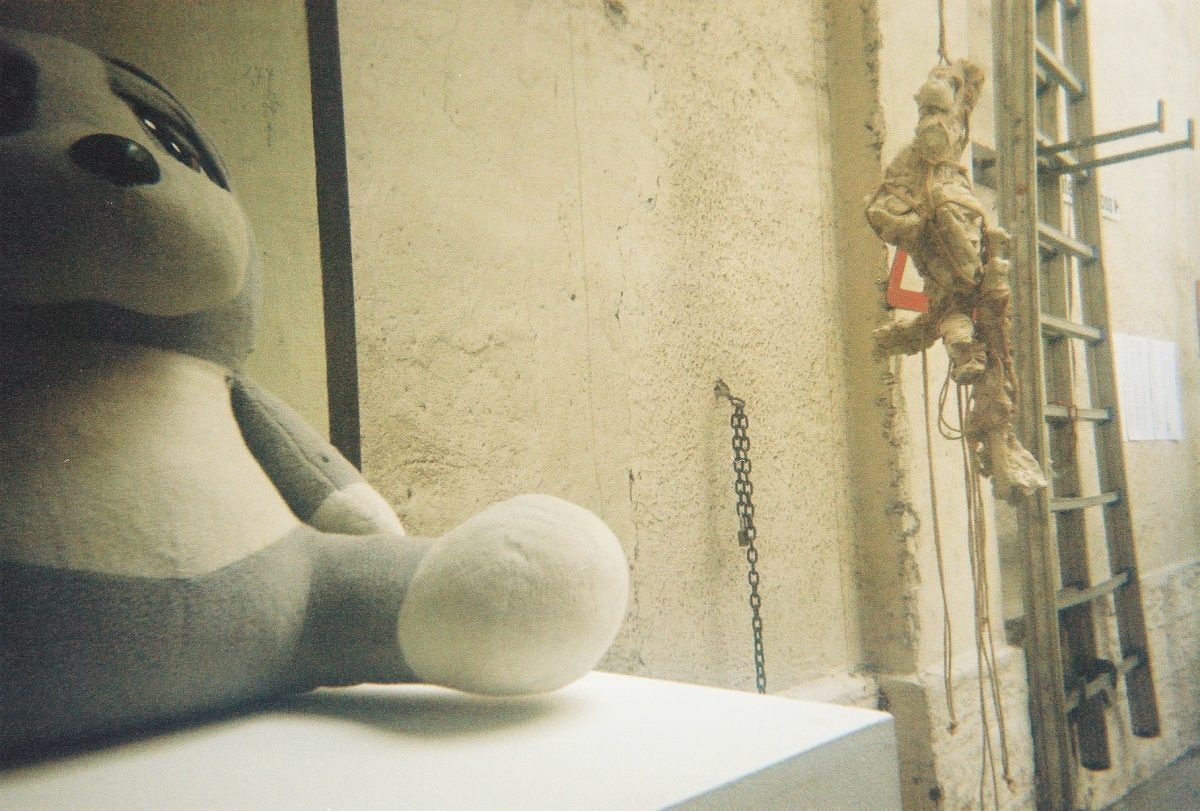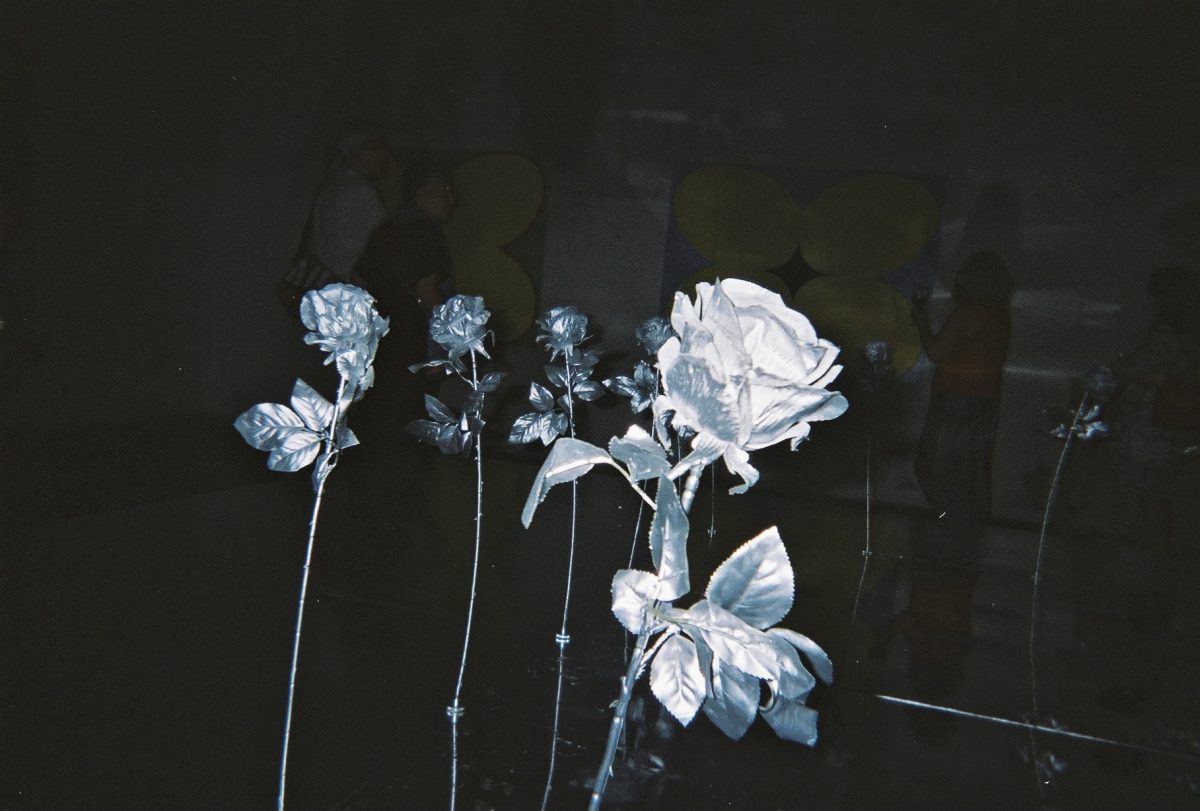Für die Serie Ausstellungsansichten kollaboriert Gina Folly mit Kindern aus ihrem Umfeld. Die Ausstellungsdokumentation des Basel Social Club während der Art Basel 2023 wird dabei in den Ausstellungsraum der Galerie zurückgespielt. Während Folly eine konzeptionelle Rolle einnimmt, lässt die Künstlerin 15 Kinder, im Alter zwischen drei und zwölf Jahren, mit Einwegkameras die Ausstellung in der Fabrikhalle dokumentieren. Unzensiert zeigt sie das gesamte Bildmaterial als Einzelperspektiven. Gerastert nach Aufnahmezeitpunkt, montiert Folly die Fotografien zu übergrossen «Kontaktabzügen». In dieser konzeptionellen Arbeit über das dokumentarische Medium der Fotografie befragt die Künstlerin die Selbstreflexivität des Kunstsystems.
Die Künstlerin und gelernte Fotografin gibt für Ausstellungsansichten die Kamera ab – sie kontrolliert weder den Auslöser noch die Postproduktion. Das Material bleibt folglich roh, direkt und unverfälscht. Jede einzelne Position enthält, was sonst als «Ausschuss» deklariert und aussortiert würde: Ob unterbelichtet oder verschwommen, unklarer Bildausschnitt oder Finger vor der Linse – für Gina Folly sind diese Bilder konstitutiv für die Serie. Durch die Störung wird das Medium der analogen Fotografie und damit auch der Arbeitsprozess sichtbar. Die Künstlerin nimmt keine Bewertung durch Selektion vor und betont die Kollaboration in ihren Werktiteln. Ermöglicht durch ihre eigene Position im Kunstsystem, bietet sie diesen neuen Perspektiven einen Platz im Ausstellungsraum. Dabei ist die Künstlerin in ihrer Konzeption und Präsentation betont direkt wie die Kinder selbst.
Folly interessiert sich in ihrem künstlerischen Schaffen für das Dokumentarische – für die Sichtbarmachung von bereits vorhandenen. Dabei befragt und reflektiert sie ihre Umgebung, wie hier die Welt der Kunst und der Ausstellungen, und macht sichtbar, welchen Konditionierungsprozessen der Mensch in der Betrachtung von Kunst unterworfen ist. Wenn gleich der Blick der Kinder (noch) nicht gesellschaftlich konditioniert ist, so beeinflussen sie einander und lichten die gleichen Motive unterschiedlich ab. Obschon gleich in Format und limitierter Bildmenge durch das Filmmaterial, konterkarieren die vielseitigen Sichtweisen die homogene Basis der analogen Einwegkameras und demaskieren den Auftrag des Dokumentarischen als eine subjektive und intuitive Angelegenheit.
Die Ausstellungsansichten lassen sich sitzend auf den 1:1-Reproduktionen vorgefundener Sitzbänke betrachten. Diese Skulpturen stehen symbolisch für die analoge Fotografie ein und bieten Platz für jene Entschleunigung, die das analoge Medium mit sich bringt.
Text: Nathalie Gallus
About the Exhibition:
In the series Ausstellungsansichten, Gina Folly is collaborating with children from her surroundings. The exhibition documentation of the Basel Social Club during Art Basel 2023 will be projected back into the gallery’s exhibition space. While Folly takes on a conceptual role, the artist asked 15 children, aged between three and twelve, to document the exhibition in the factory hall with disposable cameras. She showcases the entire footage uncensored, assembled as individual perspectives. Gridded according to the time they were taken, they conjure up oversized “contact prints.” In this conceptual work, the artist examines the self-reflexivity of the art system through the documentary medium of photography.
The artist and trained photographer hands over the camera for the exhibition views; she controls neither the shutter release nor the post-production. As a result, the material remains raw, direct, and unadulterated. Each individual position contains what would otherwise be declared as “rejects” and discarded: be it underexposed or blurred imagery, unclear shot details, or fingers in front of the lens–for Gina Folly, these images are constitutive of the series. The disturbance makes the medium of analogue photography visible and thus displays the working process. The artist does not evaluate by selection, but emphasises collaboration. Enabled by her own position in the art system, she offers these new perspectives a place in the exhibition space. In her conception and presentation, Gina Folly is as direct as the children themselves.
In her artistic work, Folly is particularly interested in the documentary concept – in visualising what already exists. In doing so, she questions and reflects on her surroundings, such as the world of art and exhibitions, and visualises the processes to which we are subjected: being conditioned to confront art in a certain way. Even if the children’s gaze is not (yet) socially conditioned, they influence each other and photograph the same motifs differently. Although identical in format and limited in image quantity by the film roll, the diverse perspectives counteract the homogeneous basis of the analogue disposable cameras and unmask the mission of the documentary as a subjective and intuitive matter.
The Ausstellungsansichten can be viewed sitting on the 1:1 reproductions of found benches. These sculptures are symbols of analogue photography and offer space for the deceleration that the analogue medium entails.
Text: Nathalie Gallus
About the Artist:
Her practice focuses on the details of contemporary social organizations, as well as the private and public constructions of individuals’ lives. Through an ironic and subtle appropriation of the objects, messages, and situations surrounding us, she reveals the poetic potential and epistemological impact that these elements have on our daily life.
